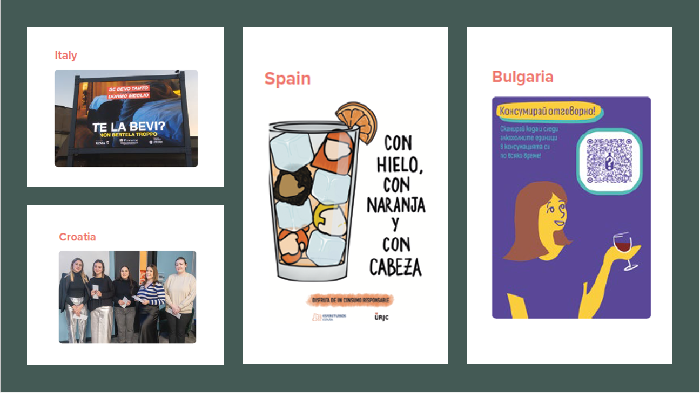
Due to regular exchanges among the membership, good practices to promote moderate consumption are identified and rolled out in other countries after adaptation to meet local needs.
The most recent example is the programme where university students enter a creative competition to develop and promote a peer-to-peer campaign. This approach was successfully pioneered by Spain in 2018 and is now being followed by Bulgaria, and Croatia and Italy, with more countries ready to join. Success depends on the commitment of marketing and communication professors willing to guide their students through the full process of designing and pitching a campaign.
The project starts with an information session, delivered by a health expert, to teach students about alcohol and why it is important to drink responsibly. The session covers topics such as how alcohol affects the body, what a standard drink is, how much is too much, when it is not safe to drink, why moderation is key, common myths, and the laws around drinking and driving.
Students then enter the creative competition. They team up with classmates to create a campaign which promotes responsible drinking, especially among their peers. They need to come up with catchy messages, visuals, and a plan to get the word out. Teachers support them during the process until the final stage of pitching their proposal to a jury, composed in part of marketing professionals. The winners receive a prize and see their campaign promoted with the help of the spirits sector.
To date, 10 universities in 4 countries have joined. These initiatives reached more than 3,500 students- directly engaged in thinking about their alcohol consumption behaviour and that of their peers. The output of these campaigns is mainly digital and is used on the main social media communication channels used by the target group.
The ambition is to have more universities from additional countries to join, which should be the case by the end of this year with Slovakia, Romania and Latvia.